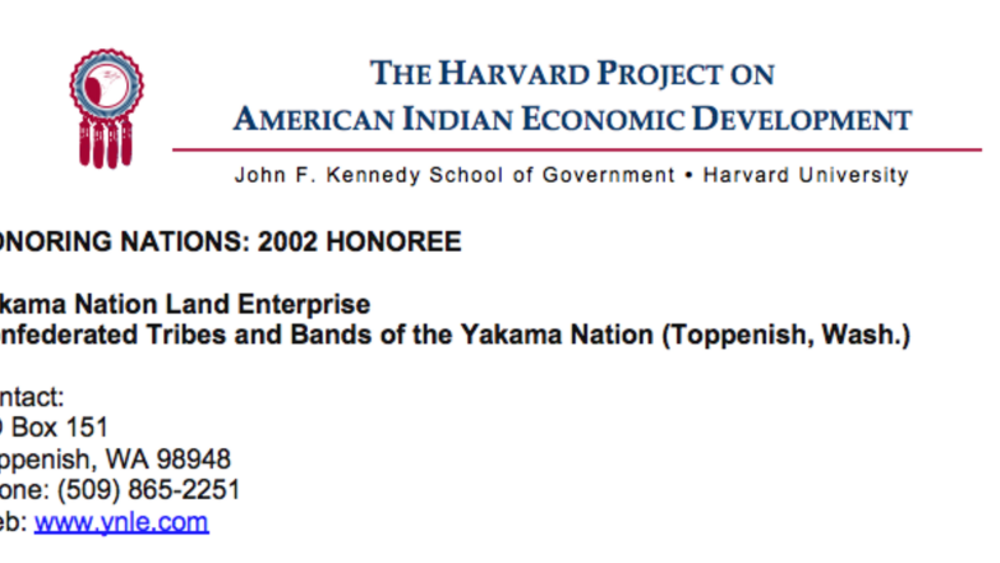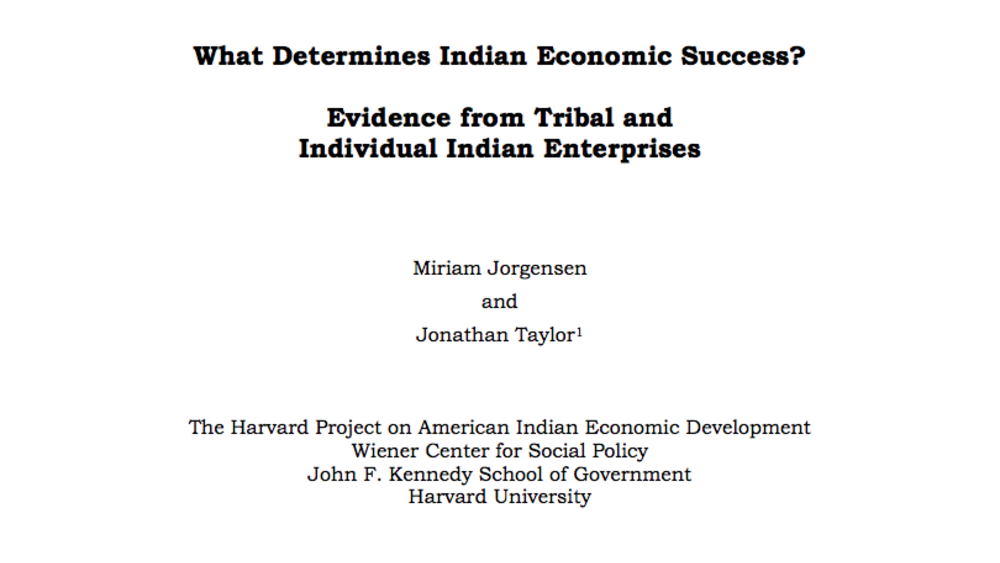Some enterprises owned and operated by Native nations do well, and others don't. Of course this is true of all businesses--some succeed and others fail--and there are numerous reasons why. After all, building a successful business is a complex and challenging task. But in these and many other cases, the actions of Native nations themselves had an impact on enterprise failure or success. This chapter examines some of the ways that Native nations can either undermine or strengthen their own enterprises and their own futures.
Additional Information
Cornell, Stephen. "What Makes First Nations Enterprises Successful? Lessons from the Harvard Project." Joint Occasional Papers on Native Affairs No. 2006-01. Harvard Project on American Indian Economic Development, Native Nations Institute for Leadership, Management and Policy, Udall Center for Studies in Public Policy, The University of Arizona. Tucson, Arizona. 2006. JOPNA.




